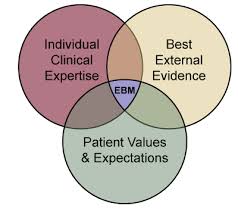You know psychotherapy works. Forty years of research evidence backs up your faith in the process. And yet, fewer and fewer people are seeking out the services of professionals. Between 1998 and 2007, psychotherapy use decreased by 35%. People still sought help, they just went elsewhere to get it. For instance, use of psychotropic drugs is up 40% over the last decade.
A recent article in Popular Science traced the decline and outlined 3 provocative steps for saving the field. If you provide psychotherapy, it’s worth a read. The article is dead serious when recommending:
1. It’s time to GO BIG;
2. Getting a cute commercial; and
3. Dropping the biology jargon.
You’ve got to admit that the field’s fascination with biology is curious. A mountain of evidence points instead to the relationship between the provider and recipient of care. Other research shows that psychotherapy promotes more lasting change, at less cost and with fewer side effects than medication.
How to get the message out?
Many people and organizations are making a valiant effort. Ryan Howe almost single-handedly established today, September 25, as National Psychotherapy Day. The American Psychological Association published a rare, formal resolution on the efficacy of psychotherapy.
Frankly though, the best commercial for psychotherapy is our results. Consider the approach taken by the Colorado Center for Clinical Excellence. They don’t merely cite studies supporting psychotherapy in general, they report their actual results!
You can begin doing the same by downloading two free, simple to use measures here.
Then, learn how to use the scales to determine your effectiveness at an upcoming Feedback Informed Treatment Intensive (FIT) training.
There, you’ll also learn how to use the data to improve both the quality and outcome of your services. That’s why the Substance Abuse and Mental Health Services Administration (SAMHSA) recently listed FIT on the National Registry of Evidence Based Programs and Practices!
So, now is the time GO BIG by joining us. The next training is coming up in March! Register now at: http://ai2014.eventbrite.ie/.





